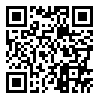مجله رویش روانشناسی از دادن گواهیهای کاغذی معذور است. لطفا تقاضا نکنید. همه گواهی ها در صفحه شخصی کاربران موجود است.
year 12, Issue 2 (spring 2023 2023)
Rooyesh 2023, 12(2): 163-172 |
Back to browse issues page
Ethics code: IR.PNU.REC.1400.285
Download citation:
BibTeX | RIS | EndNote | Medlars | ProCite | Reference Manager | RefWorks
Send citation to:



BibTeX | RIS | EndNote | Medlars | ProCite | Reference Manager | RefWorks
Send citation to:
Rahmanian M, Mizabi Asl M. (2023). The Effectiveness of acceptance and commitment-Based Therapy (ACT) on Rumination and Perceived Stress of Women with Obsessive-Compulsive Disorder (OCD) in corona pandemic conditions. Rooyesh. 12(2), 163-172.
URL: http://frooyesh.ir/article-1-4294-en.html
URL: http://frooyesh.ir/article-1-4294-en.html
1- Associate Professor Department of Psychology, Payame Noor University, Tehran, Iran.
2- M.SC., Department of Psychology, Payame Noor University, Tehran, Iran. ,mahdimizabi@gmail.com
2- M.SC., Department of Psychology, Payame Noor University, Tehran, Iran. ,
Abstract: (1033 Views)
The present study was conducted with the aim of determining the effectiveness of treatment based on acceptance and commitment to rumination and perceived stress of women with obsessive-compulsive disorder in the conditions of the corona pandemic. This research was semi-experimental research with a pre-test-post-test design with a control group. The statistical population of the research was all women suffering from obsessive-compulsive disorder, who were selected by purposeful sampling from among those who referred to public and private medical centers in Marand city located in East Azarbaijan province during the year 1401, and then based on random allocation. People were assigned to two experimental and control groups (15 people in each group). Maudsley's Obsessional-Compulsive Inventory (MOCI) (1980), Nolen-Hoeksma and Maro's Rumination Scale (RRS) (1993), Cohen's Perceived Stress Questionnaire (PSQ) (1983), And eight sessions of acceptance and commitment therapy (ACT) were the data collection tools in this research. The data were analyzed using multivariate covariance analysis. The findings showed that by controlling the effect of the pre-test, there is a significant difference in the average scores of rumination and perceived stress in the post-test stage of the experimental and control groups (P<0.05). Therefore, it can be concluded that treatment based on acceptance and commitment has had a significant effect on the rumination and perceived rumination of women with the obsessive-compulsive disorder during the conditions of the corona pandemic and causes them to decrease.
Keywords: Obsessive-Compulsive Disorder, perceived stress, Acceptance and commitment therapy, Rumination, Corona pandemic.
Type of Article: Applicable |
Subject:
Clinical Psychology
Received: 2022/12/9 | Accepted: 2023/02/17 | ePublished: 2023/04/30
Received: 2022/12/9 | Accepted: 2023/02/17 | ePublished: 2023/04/30
Send email to the article author
| Rights and permissions | |
 |
This work is licensed under a Creative Commons Attribution-NonCommercial 4.0 International License. |







